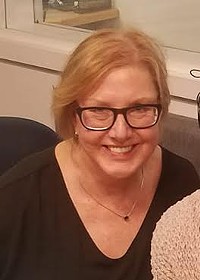Citizen Revolt: October 29
Post-Election Rundown, Protest for the Mandate, Aids Crisis Live Stream
By Katharine Biele @kathybielePost-Election Rundown
Everyone's on pins and needles waiting for the outcome of the presidential election. But it will be over soon—and then what? At 2020 Election Debrief: What Happened and Why, you'll hear from political wonks to help you understand what happened both nationally and in Utah. There are huge implications for both the presidency and Congress. You'll hear from Jim Curry, assistant professor at the U's political science department; KUTV anchor Heidi Hatch and Hinckley Institute of Politics' Jason Perry with former commissioner of higher ed Dave Buhler moderating. You won't want to miss this discussion on our polarized country. Virtual, Wednesday, Nov. 4, 1:30-2:45 p.m., free. https://bit.ly/2TjoEOd
Protest for the Mandate
Once the election is over, the work begins. "In this triple pandemic of racism, COVID-19 and recession, our National Alliance Against Racist and Political Repression is issuing a call to all the democratic forces presently engaged in the struggle against racist injustice, the economic slaughter of our communities and the utterly unspeakable failure at all levels to use its fulal capacity to stop the death march of the corona virus across the land," say organizers of Post-Election Protest for a People's Mandate. If you see the pandemic hitting hardest people of color and the working class, you'll want to make your voice heard. No matter the outcome, politicians need to hear your voice, especially amid the growing outrage over the death of George Floyd. Demands include: "Stop Police Crimes. Extend and expand economic relief for the unemployed. Stop the evictions and utility shut offs. Protect the health care that we have, we want health care for all. Fight the pandemic. Stop the racist attacks on immigrants and harassment of Asian Americans. Justice for Linden Cameron. Justice for all victims of police crimes." March from the Utah Capitol, 350 N. State, Wednesday, Nov. 4, 6 p.m., free. https://bit.ly/3miFOb5
Aids Crisis Live Stream
The Utah Film Center is offering Quiet Heroes, a journey through the life of Dr. Kristen Ries and physician assistant Maggie Snyder during the AIDS crisis. "In Salt Lake City, Utah, the religious monoculture severely complicated the AIDS crisis, where patients received no support from—or were cast into exile by—the political, religious and medical communities," presenters say. "... In the entire state and intermountain region, there was only one doctor to serve all HIV/AIDS patients." Presented as part of MEDiversity Week in partnership with U of U Office of Health Equity, Diversity, and Inclusion. Post-film Q&A with film subjects (for other MEDiversity Week events, visit, bit.ly/3meMKG9). Virtual, Thursday, Nov. 5, 5 p.m., free. https://bit.ly/37zkDxr
More by Katharine Biele
-
Mike Lee and other pro-natalists ramp up efforts to boost Utah's lagging birthrate.
Making Babies
- May 28, 2025
-
Utah lawmakers pitch berms and Band-aids as political will to save The Great Salt Lake evaporates.
Hits & Misses
- May 28, 2025
-
"Water For Elephants" becomes the 18th book banned from Utah schools.
Hits & Misses
- May 21, 2025
- More »





